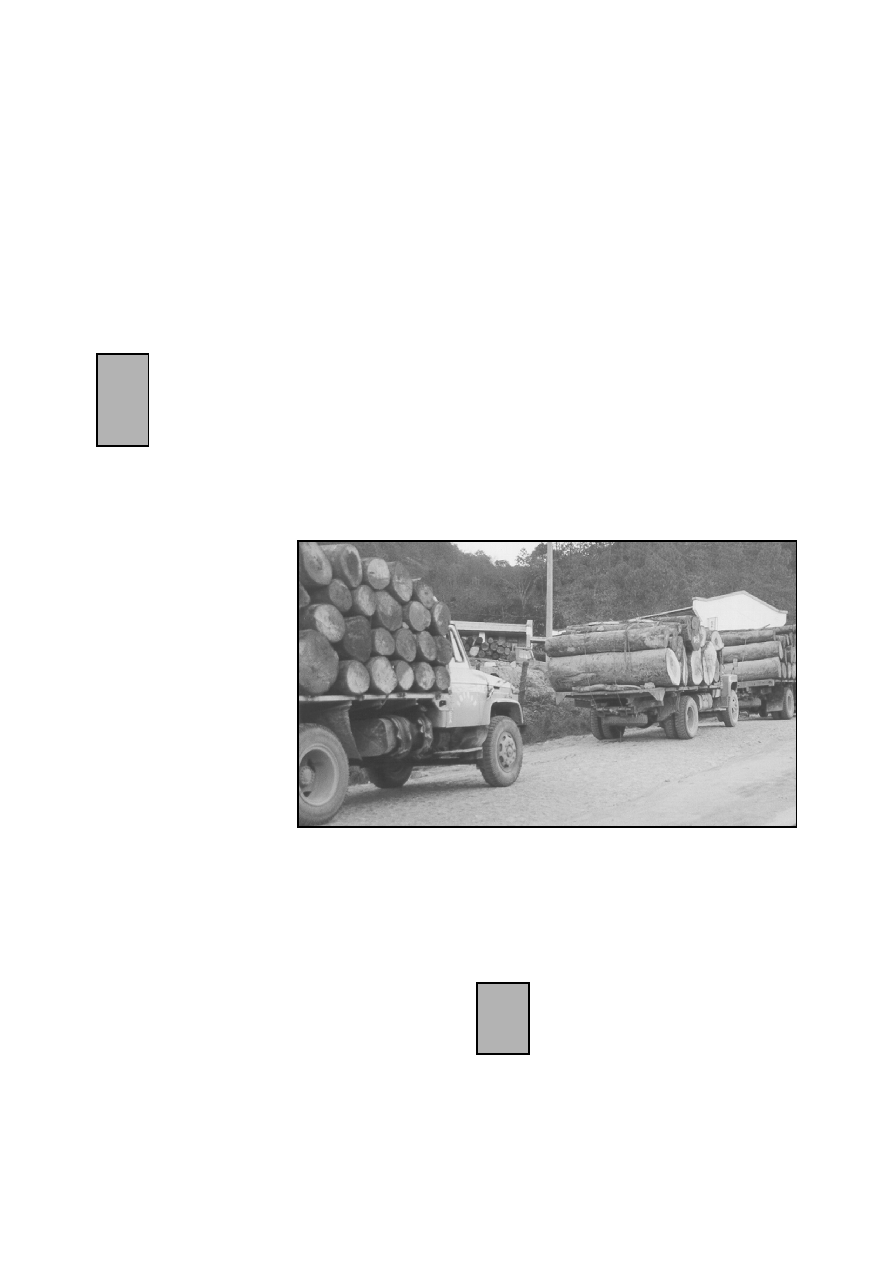
mercial logging, there have been big environmental
changes, including loss of wild food and acute water
shortages, forcing the villagers to turn their back on
the old way of life and join the logging business.
In 1994, after the ceasefire the serious logging be-
gan, and after only three to four years it had ex-
panded to every corner of the land, although in some
areas it is smaller scale and hard to document
The majority of the logging concessions now are
held by Chinese foreign businessmen and people in
authority.
Burma but in actual practice nothing positive hap-
pens, nothing changes to make conditions better for
the Kachin and other ethnic societies. The national
armies, the KIO and NDA-K
are aware of the necessity for
rapid development in Kachin
society before outsiders have
built too strong an economic
position that disadvantages lo-
cal people. They want to set up
their own development projects
in Kachin State. But, the armies
lack the skills and money to
run these projects. The imperial
jade from the mining town of
Hpakant, the main source of
wealth for the KIO and Kachin
society, is now under control of
the Burmese government.
Opium production, a former
source of financing, is internationally prohibited and
has been seriously cut back by the KIO which wants
international support and credibility. To support
their own development projects the KIO and NDA-
K have turned toward the sale of the forests. Big
scale logging started in the KIO area, after the cease-
fire agreement in 1994, and in the NDA-K area in
1996.
Almost all the biggest logging companies are from
China; which itself has a ban of logging to protect its
own forests. Some well-known holders of logging
concessions in Kachinland include the following
lauban (a honorific title for boss or tycoon): Cing
Shin (a company from Ten Chong), Cu Hi Jshau,
Leng Wun, Hkang Lung (from Yin Jiang), Fan Du
Shau (Yang Yin), Pong Han Chin, Lau Yin, Shing
Leng Woon (from Loije) and Lau Fu.
for the selling of concessions such as the building of
roads and hydropower plants. As one example, the
Jadeland Company was engaged to build a road be-
tween Bhamo- Myitkyina - Sumprabum. In winning
the bid to build the road they were given a logging
concession one mile wide on each side of the road
being constructed.
In 2001, the KIO hired the Hung Ki Company to
build the Mali-hydropower station. In return the
Jahta area was given as a logging concession to the
Hung Ki Company. Now the concession has been
extended to two Chinese companies, including the
Hug Ki and Hung Hta companies. The KIO leaders
have ordered local people not to do any logging in
this area.
Sometimes villagers are persuaded by the business-
men to ask permission for logging. For example in
1996, the villagers of Jaumau in the NDA-K area
were persuaded by a Chinese company to ask the
NDA-K leader for permission to log in their forest.
In return, the company would build a school, hospi-
man also offered to build a road and to carry all the
logs. In the end however, the concession went to
NDA-K officers and the village chief who privately
sold to the Chinese and pocketed the profits; while
the villagers were left without any benefits.
company, Chinese workers move into the forest area
for a period of months. They bring their own rice,
but for their curry they usually rely on forest prod-
ucts and wildlife. They exhaust the forest with their
hunting. When the logging process begins, the Chi-